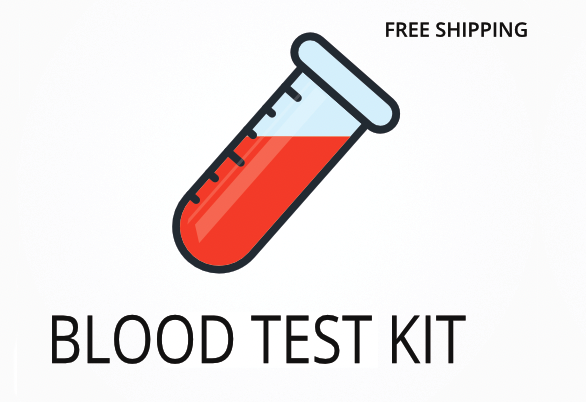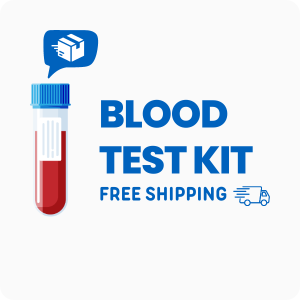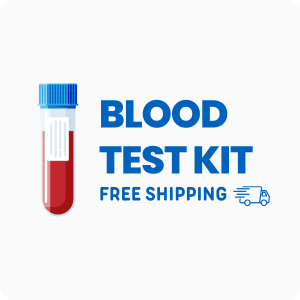Ordering the Bartonella hensefae PCR Whole Blood Test
The Bartonella hensefae PCR Whole Blood test is used to detect the presence of Bartonella hensefae DNA in the blood, which can help identify infections that may not show up on standard antibody tests. This test is especially useful for people who have symptoms that could be linked to Bartonella, such as fever, swollen lymph nodes, or unexplained neurological symptoms. Interestingly, Bartonella infections can sometimes cause symptoms that mimic other conditions, making molecular testing like PCR a valuable tool for pinpointing the cause.
Ordering this test can provide specific answers for people experiencing ongoing symptoms. Benefits of ordering include:
- Direct detection of Bartonella hensefae DNA, even in early or hidden infections
- Helps guide targeted treatment decisions based on current infection status
- Reduces the risk of misdiagnosis by confirming or ruling out Bartonella as a cause
- Supports monitoring of treatment effectiveness by tracking changes in bacterial DNA levels
- Offers clarity when symptoms overlap with other tick-borne or chronic conditions
Who Should Consider Bartonella Molecular Testing
People who have had ongoing fatigue, joint pain, or neurological symptoms after a tick bite or exposure to cats may benefit from this test. For example, someone who has been feeling tired, has headaches, and notices swollen lymph nodes after adopting a stray cat might want to know if Bartonella is the cause.
Ordering this test may also be helpful in these situations:
- Unexplained fever and rash that do not improve with standard treatments
- Chronic muscle pain and night sweats following outdoor activities in wooded areas
- Persistent eye inflammation or vision changes without a clear reason
- Memory loss or confusion that started after a known tick exposure
- Unusual heart rhythm changes in someone with a history of animal scratches
Testing for Bartonella hensefae can help confirm or rule out infection, allowing for more focused treatment and reducing the chance of unnecessary medications. Delaying this test may allow the infection to persist, which can make symptoms harder to manage and prolong recovery. For those seeking answers, ordering now can help clarify the next steps.
Preparing for Bartonella DNA Detection
Fasting is not required before this test, so you can eat and drink as usual. Make sure to follow any instructions your doctor or healthcare provider gives you, as they may have specific guidance for your situation.
Labs Included When Ordering Your Bartonella hensefae PCR Whole Blood Test
| Test Name | Reference Range | Significance | Low and High Levels of Bartonella hensefae PCR Whole Blood |
|---|---|---|---|
| Bartonella hensefae DNA (PCR) | Not detected | This test looks for the genetic material of Bartonella hensefae in your blood. A positive result means the bacteria is present and may be causing symptoms. |
High levels mean Bartonella hensefae DNA is detected, indicating an active infection.
Low levels mean Bartonella hensefae DNA is not detected, suggesting no current infection. |
Reference ranges may change slightly as labs update their methods and standards. Always review your results with a qualified healthcare provider.
Bartonella hensefae PCR Whole Blood FAQ
Is there Bartonella hensefae PCR Whole Blood testing near me?
This is a test kit that can be collected at a local draw site—check the draw location link at the top of the page. For people experiencing symptoms like fatigue or neurological changes, having a nearby collection option makes it easier to get tested quickly and start finding answers.
How do I interpret the test results?
While your treating physician should always review your results, we also offer a one-on-one test results review with our clinical team to help you understand what your results mean and what steps to consider next.
What is the cost of the test?
The price listed for this test includes standard shipping to you and return shipping to the lab, but draw fees may apply at your collection site. Ordering this test can help you identify a Bartonella infection sooner, which may lead to faster symptom relief and more targeted care.
How often should I retest?
Retesting is usually recommended 4-6 weeks after starting or changing treatment, especially if symptoms continue or return. This helps track if the infection is still present and guides your next steps for care.
How accurate is the test?
This test uses polymerase chain reaction (PCR) technology to detect Bartonella hensefae DNA, with a sensitivity of 92% and specificity of 98%. TrueHealthLabs.com partners with CLIA-certified and CAP-certified laboratories to uphold rigorous testing standards for dependable results.
Medical Review Board
Reviewed by Jeff Donohue M.D. from Body Logic and Brady Hurst DC, CCCN. Written by True Health Lab’s team of editorial health contributors.
Disclaimer: This information is for educational purposes only and not intended as medical advice. Consult your healthcare provider for personalized guidance.
Why Customers Trust True Health Labs - What People are saying
Also rated 4.6 out of 5 based on 3452 ShopperApproved reviews- See all TrueHealthLabs.com reviews.








